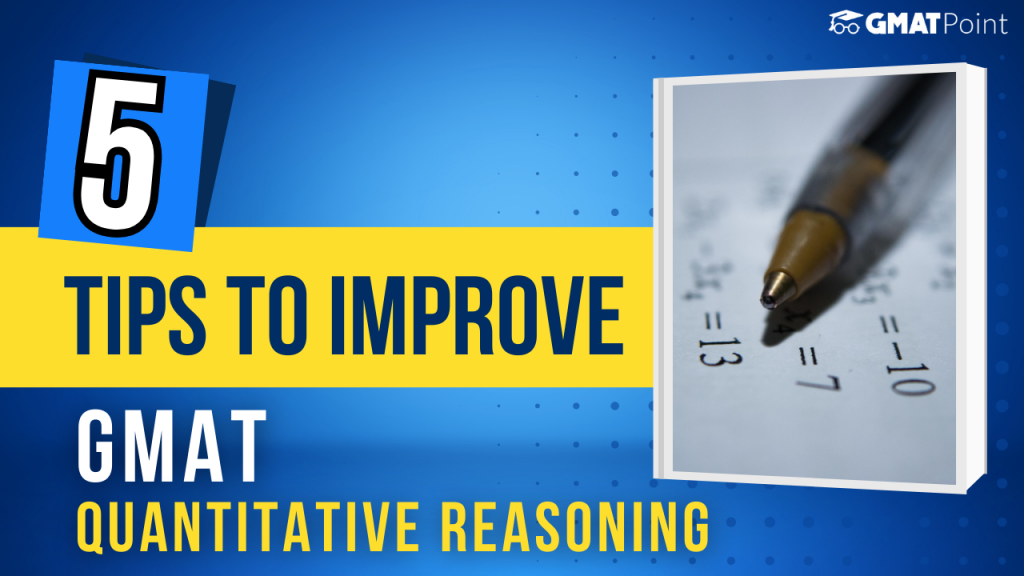GMAT Quantitative Reasoning Preparation Tips
If you are preparing for the GMAT exam, you might wonder how to improve your quantitative skills. Quantitative Reasoning is one of the most important sections of the GMAT.
Take Free GMAT 2023 Daily Targets
Subscribe To GMAT Preparation Channel
The GMAT quants section tests your ability to solve problems involving arithmetic, algebra, geometry, number properties, probability and data analysis. It also requires fast solving and knowing when to move on to the next question. Here are five tips to help you boost your GMAT quants score:
1. Understand Concepts At The Core
The GMAT quants section is not just about memorizing formulas and rules. You must understand the underlying concepts and how they apply to different situations. For example, you should know how to manipulate fractions, exponents, roots and inequalities. You should also be familiar with the properties of shapes, angles and lines. Reviewing the basic concepts and practising them regularly will help you avoid mistakes and save time.
You can go to GMATPoint classes (https://gmatpoint.com/free-gmat-video-lectures) to watch concept videos and problem-solving techniques for free.
2. Solve Problems Instead Of Watching Others Solve Them
Once you know the basics, you actually have to solve problems to get better at quants. Watching videos or reading explanations can be helpful, but more is needed. You need to practice solving problems independently, under timed conditions and with realistic difficulty levels. This will help you develop your problem-solving skills, speed and accuracy.
In this regard, you should definitely check out GMATPoint’s free classes and tests, where you will get free video lectures and questions on how to solve GMAT-level problems. However, we recommend that you read the question, solve it yourself and then watch the best way to solve the question.
You should also use GMATPoint Daily Targets for free practice questions on both QA and VR every day, along with their video solutions which you will get after you have solved the questions.
3. Improve your strategies
Sometimes, solving a problem directly can be time-consuming or complicated. In such cases, you can use alternative strategies such as using options to back-calculate the answer, making estimations, or eliminating options to find the right answer. These strategies can help you save time and avoid calculations.
For Example:
Q. What is the smallest positive integer x for which x^3 +5x has a value of more than 80?
a)2
b)3
c)4
d)5
e)6
A: This could be solved as an inequality x^3+5x-80>0
however, we should try solving it by back-calculation as it will save a lot of time. Starting from the middle, applying x=4 gives 4>0. From this we can be sure that 5 or 6 will not be the answer. If we apply x=3, we get -38>0 which is false, hence the answer cannot be 3 or 2. Hence the option is 4.
However, you should also be careful not to rely too much on shortcuts and use them only when appropriate. The main focus should always be on building core concepts first.
4. Keep an error log
An error log records the problems you got wrong or struggled with during your practice sessions. You should keep updating your error log every time you encounter a difficult problem where you make a mistake. You should also review your error log regularly and try to resolve those problems again. This will help you identify your weaknesses, learn from your mistakes and avoid repeating them in the future.
5. Pacing yourself
The GMAT quants section consists of 31 questions that you have to answer in 62 minutes. That means you have an average of two minutes per question. However, some questions might take longer than others, so you must manage your time wisely. You should not spend too much time on any single question and risk running out of time for the rest of the section. Remember that you will be penalised for not completing the section too.
You should also not rush through the questions and make careless errors. It would be best to aim for a balance between speed and accuracy and move on to the next question when you are stuck or unsure of a particular question.
We hope these tips help you in your GMAT preparation. Stay updated on the latest GMAT news and more strategies on our exam blog.
Also Read:
- What Is GMAT? – Everything to know about the test
- How To Prepare For GMAT In 1 Month?
- What Is Tested In GMAT Verbal? How To Improve Verbal In GMAT?
- Introduction To GMAT Verbal Reasoning (With Solved Examples)
- How To Improve In GMAT Sentence Correction: Tips, Tricks, and Strategies
- 6 Interesting Facts About The GMAT Exam You Should Know
- GMAT preparation for beginners: What to Study and How
- 6 Best Practices for GMAT Preparation: The Ultimate Study Guide
- How To Study For GMAT With Full-time Job?
- Can You Study for GMAT On Your Own? A Step-by-step Approach
- Is GMAT Easy To Crack? What Makes GMAT Challenging
- How to start your GMAT preparation | 5 Tips To Crack GMAT
- Top colleges accepting GMAT scores in India
If you are starting your GMAT preparation from scratch, you should definitely check out the GMATPOINT
